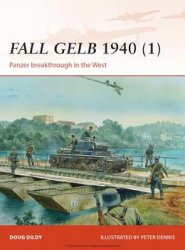As we have seen, the divisions created by the Cold War
led the nations of Western Europe to form the North Atlantic
Treaty Organization in 1949. But military cooperation
was not the only kind of unity fostered in Europe after
1945. The destructiveness of two world wars caused
many thoughtful Europeans to consider the need for additional
forms of integration. National feeling was still
too powerful, however, for European nations to give up
their political sovereignty. Consequently, the quest for
unity focused primarily on the economic arena rather
than the political one.
In 1951, France, West Germany, the Benelux countries
(Belgium, the Netherlands, and Luxembourg), and
Italy formed the European Coal and Steel Community
(ECSC). Its purpose was to create a common market for
coal and steel products among the six nations by eliminating
tariffs and other trade barriers. The success of the
ECSC encouraged its members to proceed further, and in
1957, they created the European Atomic Energy Community
(EURATOM) to further European research on
the peaceful uses of nuclear energy.
In the same year, the same six nations signed the Rome
Treaty, which created the European Economic Community
(EEC), also known as the Common Market. The
EEC eliminated customs barriers among the six member
nations and created a large free-trade area protected
from the rest of the world by a common external tariff.
By promoting free trade, the EEC also encouraged cooperation
and standardization in many aspects of the six
nations’ economies. All the member nations benefited
economically.
Europeans moved toward further integration of their
economies after 1970. The European Economic Community
expanded in 1973 when Great Britain, Ireland, and
Denmark gained membership in what its members now
began to call the European Community (EC). By 1986,
three more members—Spain, Portugal, and Greece—
had been added. The economic integration of the members
of the EC led to cooperative efforts in international
and political affairs as well. The foreign ministers of the
twelve members consulted frequently and provided a
common front in negotiations on important issues.
|
|
||||||||
|
Www.WorldHistory.Biz
Sundries
 Contact Contact
|
 
10-08-2015, 22:19
Western Europe: The Search for Unity
  |
|||||||
 |
 |
 |
 |
|||||
|
||||||||

 World History
World History





